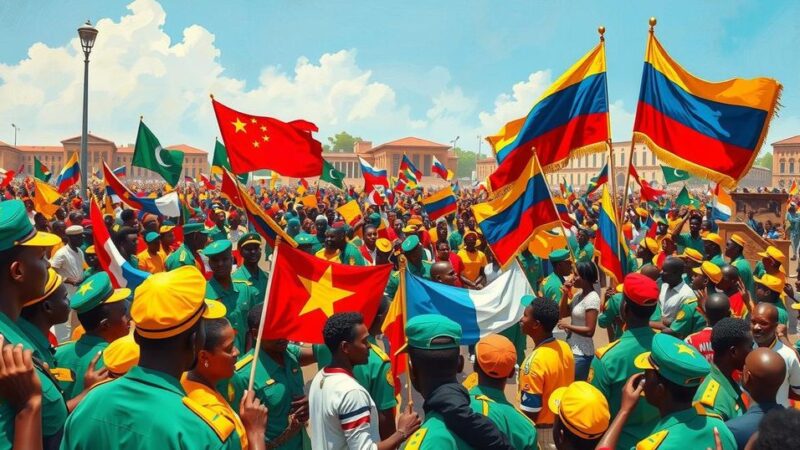The upcoming election in Singapore focuses on the margin of victory for the ruling P.A.P., in light of rising opposition strength. Analysts observe growing dissatisfaction with the P.A.P.’s policies amidst economic pressures. The Workers’ Party is gaining momentum, emphasizing the need for a balanced political system. Prime Minister Lawrence Wong argues for experienced governance as the nation navigates global challenges.
As Singapore gears up for its impending election, the spotlight is firmly positioned on the margin of victory rather than the winning party. The long-dominant People’s Action Party (P.A.P.) is anticipated to extend its six-decade rule. However, increasing discontent with its policies is stirring a noteworthy rise in the opposition’s presence, particularly amid global challenges.
Similar to the previous election, Singapore finds itself amidst a significant global crisis. In 2020, the governing P.A.P. positioned itself as the steady force guiding the nation through the COVID-19 pandemic, a perspective echoed in the current election cycle as global trade dynamics shift under the influence of President Trump’s actions.
Despite predictions that the P.A.P. will maintain power, this election serves as a critical gauge of its popularity. In the 2020 elections, the party experienced its second-worst electoral performance, illustrating a growing desire among voters for a more vibrant democratic landscape in the city-state.
Political analysts note that the opposition, particularly the Workers’ Party, is gaining traction with a more invigorated following. Voters are increasingly dissatisfied with the P.A.P.’s handling of the escalating cost of living. During recent campaign rallies, the Workers’ Party drew large crowds, and merchandise related to the party quickly sold out. Pritam Singh, the party leader, clarified, however, that while they might not contest enough seats to form a government, a balanced political system is essential for Singapore.
At the party’s initial rally last week, Mr. Singh emphasized, “When you have opposition in Parliament, your alternative voice is heard by the government.” He further declared the importance of civic engagement in the democratic process, asserting, “We must be active participants in our democracy.”
The upcoming election could serve as a referendum on change in Singaporean leadership. Prime Minister Lawrence Wong, having assumed office in the wake of Lee Hsien Loong’s two-decade leadership, underscores the necessity of experienced governance amidst current trade tensions, stating that trust and established relationships with U.S. and Chinese counterparts are crucial.
In essence, Mr. Wong reiterated the P.A.P.’s time-tested message: that it is the party’s proven track record that provides stability and prosperity for the nation of nearly six million, one of the wealthiest in terms of per capita income.
In summary, Singapore’s forthcoming election presents more than just a battle for leadership; it epitomizes a test of political sentiment. The P.A.P. may retain its power, but increasing voter discontent reflects a burgeoning appetite for opposition representation in governance. With the global landscape shifting, this election may define Singapore’s political future and its demographics’ role in shaping it.
Original Source: www.nytimes.com






